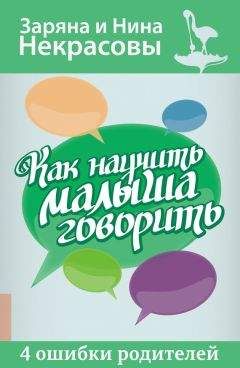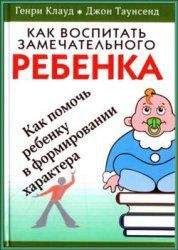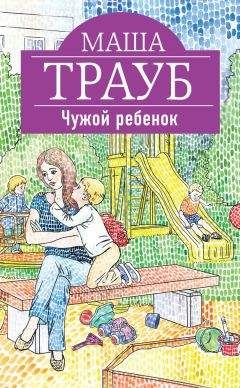Leo Frankowski - CONRADS QUEST FOR RUBBER
I told them that Jane was accepted as an army civilian scout, with the status of an army knight. The pay consisted of room, board, and equipment, plus eight pence a day, retroactive for a year. She didn't understand what most of this meant and was soon talking intensely with Knight Banner Tomaz.
Our wives had no clear idea why we were so happy about our promotions. Our increased pay had no meaning for them, since they didn't know what money was. Our increased status also meant little to them, because in the society they grew up in, small differences in status had little meaning. You were either the chief or you weren't. But at the inn, they were delighted with the music, the dancing, and the ambience of the place, and they were happy because everybody else was happy.
Looking at them, I was reminded that they were really very limited creatures, and a life with Booboo would be much different from the one I had long dreamed of with Maude. It seemed rude to even think it, but we three were permanently bonded with creatures that were, at best, pretty, amusing little puppy dogs. And at worst? I couldn't even imagine, but I was sure that it could become very bad indeed.
I knew that life must go on, but I wasn't at all sure that I wanted to go on with it.
Before my thoughts got too morose, Captain Fritz came in, bringing with him the eight men of his platoon who had survived the year. After introductions were made, our ladies were all surrounded by eager admirers. Fritz and I found ourselves at one end of the table, deep in conversation, discussing our year apart. It was almost like being home. Slowly, my mood revived.
I told my story to Fritz, and he nodded and shook his head in all the right places. He understood what I was saying because his life's experiences were so very like my own. As a good friend will, he let me tell the whole story almost without interruptions, before he started in on his own.
Fritz had found the natives on the south bank friendly from the start. They had immediately seen the value of our products, and were familiar with the concept of trade. If they believed in ghosts, they never talked about it. He thought that the huge width of the river must separate two very different nations.
The people he found did some hunting and gathering, but they were primarily agriculturalists. The dozens of plants they cultivated were completely unknown in Europe, and he saw rich possibilities in trade with them.
There was a kind of pea in which the pods grew at first aboveground, but then went underground as they matured, actually planting themselves! Dug up, roasted, and heavily salted, Fritz said they were wonderful with beer.
They had dozens of fruits he had never seen before, and most of them were delicious. One of them, which looked like a big hand grenade growing in a display of swords, was particularly good.
"On the other hand, nobody ever insisted that we participate in a mass orgy. I think I'll always envy you that one!"
Apparently, the native girls were not extremely interested in Fritz and his men. They were generally available, but only after you negotiated the size of the gift that was to be given to them in advance.
"The price was mud cheap, but it still smacked too much of prostitution for me to greatly enjoy it. I scratched the itch once a week or so, but it was mere gratification, and not love."
The only trouble that he encountered in the first few weeks happened when one of his men was urinating over the side of their riverboat.
"Sir Ian started screaming, and clutched his privy member. He bounced around for a bit, and then fell over onto his back, shouting the most blasphemous of oaths! I was the closest thing to a surgeon we had on board, so I had a half-dozen men hold him down while I examined him. I couldn't see a thing out of the ordinary, so I had him released.
"None of our medications had any beneficial effect, and we didn't yet have a native who could speak Pidgin well enough to question what passes for a doctor among them. Ian remained in great pain for three days, during which time he never urinated, and I began to fear that his bladder would burst. After consulting with the others, it seemed that the only thing to do was to cut the member open, to see what was causing the problem.
"We couldn't even get poor Ian drunk, since that would only have generated more urine. With six men holding the screaming knight down, I took a sharp, clean scalpel and sliced along the last half of the length of his penis. Pints of blood and a gallon of urine squirted out, but can you guess what else was in there?"
I shook my head, and Fritz continued.
"There was a tiny fish, stuck in the urine vessel! It had three little barbs, like a catfish, that had stuck into Ian's flesh, and that was what was blocking his pipe!
"All that we can imagine is that as he was relieving himself, the fish must have swum upstream, right up his urine and into his privy member! There seems to be no other way it could have happened. As you can imagine, we all used a bucket after that.
"Well, I sewed the man up, and he managed to live. That is, he lived until he came down with a fever, three months later."
The rest of his sad story was a matter of surviving a fever much as I had and then building a boat and getting back to the rendezvous. Lacking native advice, since those natives who had not died of their own plague had run away, it took him much longer than it did us to build a suitable boat.
"I managed to get more of my men back than you did, but I must admire the ladies you brought to replace some of those you lost. I've often had fantasies of having a girl so small that I could carry her along in my pouch, and your new wife comes close to that. If there are more like her where she comes from, I'm minded to go along with you when you return. But for tonight, what is the story on the warrior woman you brought back? I mean, is she really the sort who prefers other women?"
I said I honestly didn't know about the lady's sexual preferences. Her tribe was heterosexual, of course, with women marrying men, but from there on, the usual roles were reversed. She had fit into my team as one of the troops. None of us males had seen fit to make any advances toward her, as far as I knew, and she had made none toward us. I said that if Fritz wanted to try, he was free to do so, but I advised that he move with great caution, and that at no time should he dare to offend the woman. She could be quite deadly if she wanted to.
Fritz went over and talked to Jane, and in time their conversation became more and more animated, with both of them smiling hugely. Eventually, they walked out of the inn arm in arm. I wished them both well.
After a bit I noticed that my wife was either asleep from too much excitement or had passed out from too much to drink, and that in any event it was getting late. I bid the others good-bye, picked her up in my arms, and carried my little bride home.
Someone had mentioned that in the course of giving her a medical examination today, they had weighed her in at thirty-four and a half pounds. Cuddled up in my arms, she reminded me of a sleeping kitten. She was very pretty, very precious, but somehow something less than a real human being. I began to believe that her tribe's evaluation of themselves, that they were above the animals but below the true men, was essentially true.
By no stretch of the imagination could I imagine her becoming my true life partner. The pretty lady I had married in a pagan ceremony was in truth but a house pet.
Chapter Thirty-Two
From the Diary of Conrad Stargard
FEBRUARY 26, 1251
I SAT at my desk with my head in my arms. Father Ignacy was in Rome. He was a cardinal bishop now, and he was voting on who would be the next pope. Many said he himself would win the office. I suppose I was happy for him, but the truth was that I needed my confessor, more than at any time before in my life. I had sinned. Oh God, how I had sinned!
I had sent a company of my best men out on an ill-thought-out mission, and because of me, most of them were dead. Far worse still, I had been responsible for introducing all of the diseases of Europe into the New World, and native Americans were dying by the whole villageful!
Killing in time of war has never bothered me, but this horrible thing I had done was something far worse than that! It is one thing to kill fighting men who invade your country, and quite another to go to someone else's land and sicken every man, woman, and child there with deadly diseases!
It was undoubtedly still going on. The damage was still being done. People were still dying. We had no way to stop those diseases from spreading throughout half the world.
Maude came into my office and stood in front of my desk. She wasn't smiling.
"Josip sent me a message. He says he cannot come home. He says that if he did, he might spread diseases here in Europe."
"Yes, Maude. That, too, is another of my sins."
"You must not sit there and cry. You must talk to your cousin Tom. Tom knows about diseases. Tom knows all about living systems. If you ask him, he will help you. He will help Josip. You must talk to Tom."
"Tom has helped me out several times before, but I have never asked for help before," I said.
"You must talk to Tom. He will help you."
"You are right, of course. People are dying as we speak. This is no time for stupid pride." I looked up at the ceiling and said, "Tom! Help me, Tom! I need your help! If this disease problem isn't solved quickly, I am going to have to stop the entire exploration program! You will never see a worldwide culture! I won't be the cause of making things worse than they already are! I won't be responsible for bringing plagues and the Black Death all across the globe! If I have to, I'll build a ten-story concrete wall all around Europe, I swear I will!"
A door that hadn't been there before opened up in the wall behind me, and my cousin Tom, dressed in T-shirt, shorts, and tennis shoes, walked into the room. He had a handwritten Polish manuscript in one hand and three test tubes in the other.
"All right! All right! You don't have to start making threats!" He surprised me by speaking in Polish. I'd never heard him do that before. Thinking about it, I had called to him in Polish.
He set the manuscript on my desk, turned to me, and held up one of the test tubes.
"Okay. This is part one. What it does is mark every cell in the body as being human. It must be given at least twelve hours before the next part is administered. That's six of your hours. We call it the butter, because that's what it looks like and tastes like. You can take it as often as you like, and for your regular troops, we recommend a pat of it every morning. That way, the treatment can be started immediately in the event of illness. Also, it doesn't spoil, and it's cheaper than real butter. You can make it even with your primitive technology. You just mix a sample of it with any fresh mammalian milk, and let it set for a day. That's also how you make the other two parts of this system.
"This second part is called the cheese, for obvious reasons. The dosage is nine grams per hundred kilograms of body weight, plus or minus twenty percent. It's a deadly poison, and will kill anything alive except for human cells that have been, protected by part one, the butter. The person treated is poisonous to all other life-forms for the next six of your hours. Keep the patient away from plants and pets during that time period. That includes neohorses, wenches, and all the other bioengineered critters.
"The third part, the oil; replaces all of the body's symbionts that were killed off by part two. You drink a few grams of it the day after you take the cheese and rub about twice that amount on the skin.
"Now, nothing is perfect. When you use this system, all of your stomach flora are killed and you are in for a serious case of the runs. There are a few rare types of brain tumors that this system can't cure. The worst problem is that in the case of very large tumors, the tumor is killed, but sometimes having a big, dead mass in your body overloads the body's cleanup system, and that can kill the patient. The best way to be sure this doesn't happen is to go through the treatment every half year. That way, really big tumors don't have time to grow. Also, life spans and general health are increased with regular use.
"In the case of communicable diseases, the system will cure the patient, but then sometimes the patient will contract the same disease again. In that case, just repeat the cure. Eventually, given enough time, the body will develop a natural immunity to that particular disease.
"Any other questions you might have are answered in the manual I brought. You ought to read it thoroughly before you try using this stuff."
"Tom, thank you. This stuff sounds like magic!"
"By your standards, I suppose it is. One man's magic is another man's technology. This project consumed over nine million high-quality man-hours, which is good, since they needed something interesting to do. Anything else you need, ask for it. Within reason, of course, and as long as you don't ask me to violate causality. Well, hang in there."
"Thanks again, Tom."
He left my office by the same doorway that he came through, after which the door disappeared. Maude never left the room, and Tom never acknowledged her existence, which was typical of him.
I glanced at the other, normal door into my office and saw Baron Piotr and my secretary looking in with their mouths open.
"Your grace, you have some very strange relatives!" Piotr said.
"How long have you two been standing there?" I asked.
"Ever since we heard you shouting at the ceiling," Zenya said. "You called for help."
"Huh. I suppose I did. Well, don't talk about all this, all right? But for now, we've got work to do. Piotr, get this manuscript down to the print shop. I want six thousand copies run off by yesterday. This takes precedence over everything, including sleep. Got it? Then move!
Chapter Thirty-Three
From the Journal of Josip Sobieski
WRITTEN MARCH 1, 1255, CONCERNING MARCH 1251 TO APRIL 1254
I HAVE a few days of idle time before the next semester starts, so I might as well bring my autobiography up to date.
As I was lying in the hospital at Brazylport in 1251, the surgeons were saying they would probably have to amputate my infected left foot, when the Atlantic Challenger steamed in with a company of volunteers, two dozen milk cows, and the Cure. I was eating breakfast when a new doctor, fresh off the boat, came to see me.
"Don't worry about a thing," he said. "This won't be nearly as bad as what you've heard about."
I said I hadn't heard anything at all about the new medicine, but his last statement had indeed started me worrying.
"Really, there's nothing much to it. I went through it myself a week ago, when we crossed the sector line." When he saw the quizzical expression on my face, he continued. "They have divided the world up into thirty-three sectors, to contain communicable diseases. Every passenger and crew member on every ship that passes between two sectors has to take the Cure, all at the same time, to stop the spread of diseases between areas. Then they fumigate the whole ship, just to beon the safe side. It's a bother, but considering the number of deaths that were caused on both sides when your crew came to Brazyl, you have to admit that it will be worth it."



